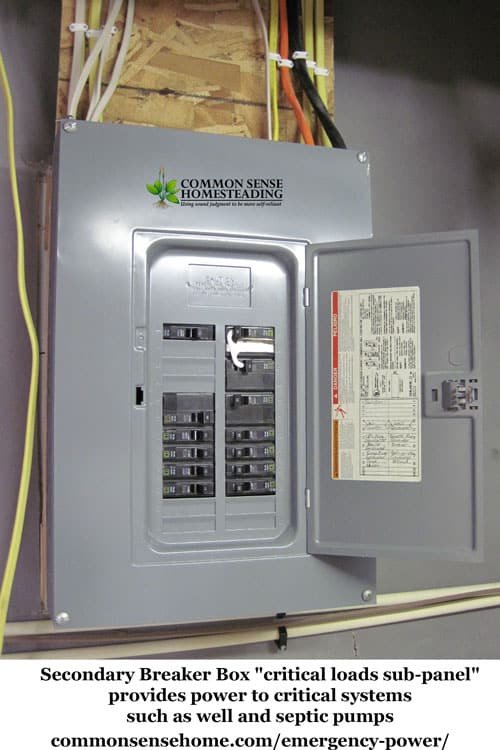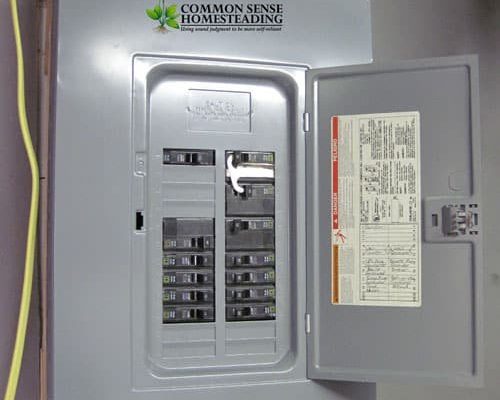
That’s where having a solid emergency power plan really pays off, whether you live in a centuries-old home in South of Broad or a sleek condo overlooking the Ashley River. From portable generators to solar battery systems, knowing your options for backup energy is a bit like picking out the right umbrella before a thunderstorm hits. It doesn’t just give peace of mind—it can keep your wifi running, protect precious food, and make your family a lot more comfortable when the grid goes down. Let me walk you through the power options every 29401 homeowner should consider, plus a few smart ways to keep things running smoothly when the next outage arrives.
Why Do Power Outages Happen in 29401?
You might be wondering, “Isn’t Charleston’s power grid pretty reliable?” Sure, most of the time it is. But the 29401 area, with its mix of old neighborhoods and big trees, sees its fair share of blackouts. The culprit is usually storms—think hurricane-force winds or even a classic summer thunderstorm knocking branches into power lines. Here’s the thing: even a short outage can disrupt your entire evening, let alone a storm that brings down the grid for days.
Honestly, it’s not just weather that throws a wrench in the works. Sometimes, repairs or scheduled maintenance can flick the switch off without much warning. Old wiring in historic homes might also trip breakers or short out. Even in the best neighborhoods, things happen. That’s why so many homeowners in downtown Charleston are starting to look for backup power solutions that make sense for their lifestyle, budget, and the age of their home.
Power outages don’t just mean the lights go out. Critical systems like refrigerators, home security, internet routers, and sometimes even medical devices all rely on steady electricity. Having a backup plan feels less like a luxury and more like an essential part of life, especially if you’re living in 29401 where history and Mother Nature seem to go hand in hand.
Whole-Home Generators: Reliable Backup When You Need It Most
If you want a set-it-and-forget-it solution for emergency power, a whole-home generator is probably the gold standard, especially for 29401 homeowners. These systems (brands like Generac or Kohler often come up in neighborhood chats) connect directly to your home’s electrical panel and run on natural gas or propane. When the grid drops out, the generator detects the problem and kicks on automatically—sometimes within seconds. It’s kind of like having a dedicated backup quarterback ready to jump into the game whenever the starter gets sidelined.
The beauty of whole-home generators is their ability to power every circuit in your house, from your AC unit to your coffee maker. No more picking and choosing what to keep running. However, these aren’t small gadgets. Installation is a project—you’ll need a professional electrician to sync it with your home’s wiring, and in a historic area like 29401, you might have to consider local codes or HOA guidelines.
Cost can be a hurdle, too. A good system, plus installation, might set you back anywhere from $6,000 to $12,000 or more. But for those who can swing it, the payoff is huge: seamless, automatic power during an outage, with minimal hassle. And in a neighborhood where home values run high, investing in a whole-home generator can even boost your property’s appeal.
Portable Generators: Flexible Power for Every Situation
Not ready to commit to a permanent installation? You’re not alone. Portable generators are the go-to emergency power option for many people in the Charleston area. They’re basically the Swiss Army knives of backup electricity—small, versatile, and (relatively) easy to store in a garage or shed. When trouble strikes, just roll it out, add fuel, and plug in your essentials.
These generators typically run on gasoline or propane and output enough juice to run your fridge, charge your phone, and maybe keep a couple of lights on. Here’s the thing, though: you do have to manually start them up and connect appliances using extension cords. It’s not a set-and-forget solution, and you need to be extra careful never to use them indoors—carbon monoxide is deadly, and even an open garage can be risky.
For most homeowners, portable generators offer a sweet spot between affordability and usefulness. You get the freedom to move them where you need, and they’re much cheaper up front—think $500 to $2,500 for a decent unit. Maintenance is simple: keep the tank empty when not in use, check the battery, and run a test code every now and then. If you’re looking for a backup plan that won’t break the bank but still keeps you ready for the next storm, a portable generator is worth serious consideration.
Solar Battery Backup Systems: Clean, Quiet, and High-Tech
Solar power is having a real moment—especially among eco-minded homeowners in 29401. But even if you don’t have massive rooftop panels, battery backup systems like Tesla Powerwall or Enphase can keep critical appliances running when the grid flickers out. These systems store excess energy from solar panels (or even from the grid when rates are low) and automatically discharge it when you need it most.
One of the biggest perks? Solar battery backups are blissfully quiet. There’s no engine noise and no fumes, making them perfect for close-knit neighborhoods where you might not want to tick off the neighbors. Plus, they require very little hands-on upkeep. No refilling fuel tanks, no dragging out extension cords, just a smart system that does the heavy lifting for you.
Installation does take some planning. You’ll need a pro to pair (or sync) the batteries with your existing electrical system and, ideally, with solar panels. In some cases, you can code settings to prioritize which appliances get power during an outage. The upfront cost is higher (often $7,000 to $15,000+), but local incentives in South Carolina can help. And for those who love the idea of energy independence, this is easily one of the slickest emergency power options for 29401 homeowners.
Uninterruptible Power Supplies (UPS): Protecting Your Electronics
Let’s be honest: sometimes you’re less worried about your fridge and more about your laptop, router, or home security system. That’s where Uninterruptible Power Supplies (UPS) come into play. These battery-powered devices are like mini-bodyguards for your sensitive electronics. The moment the power blips, the UPS kicks in instantly—no reset, no interruption.
Here’s why they matter: brief outages can corrupt data, damage devices, or kick you off an important Zoom call. If you work from home or have a home office in 29401, a UPS is an easy investment to protect your productivity. Most units provide about 10–60 minutes of backup, depending on the model and what you plug into them.
UPS systems don’t power your whole house, but they’re perfect for bridging short outages or giving you time to safely shut down computers and network gear. Setup is a breeze—just plug them in and connect your devices. For many people, a UPS is a small but mighty piece of a larger emergency power plan.
Which Emergency Power Option Is Right For Your Home?
Every Charleston home is unique—what works for a waterfront mansion might not fit an apartment above King Street. Here’s a quick breakdown of how to decide what’s best for your lifestyle and budget:
- Whole-home generators for seamless, automatic backup (ideal for large households or critical medical needs).
- Portable generators for budget-friendly, flexible emergency power (works well for short-term outages and smaller homes).
- Solar battery backup for clean, silent operation (perfect for eco-conscious homeowners or anyone looking to cut down on utility bills long-term).
- UPS systems for targeted protection of sensitive electronics (a must-have if you work from home or run important tech devices).
You might even mix and match. For example, pairing a portable generator with a couple of UPS units can cover both your basics and your electronics. The key is making sure the system you pick is easy to use, fits your home’s layout, and is ready to roll before you actually need it.
Tips for Maintaining and Troubleshooting Backup Power Systems
Here’s the part a lot of folks overlook: emergency power systems only work if they’re properly maintained and ready to go. It’s a bit like having a fire extinguisher—you hope you never need it, but you want it to work when you do. Let me explain how you can keep your system in shape:
- Test your generator monthly by running it for 15–30 minutes to check for any sync issues or error codes.
- Inspect batteries (especially in UPS and solar systems) every few months. Look for swelling, leaks, or reset indicators.
- Keep fuel fresh—old gasoline gets gummy, and old propane tanks can lose pressure, so rotate fuel stock regularly.
- Check connections and extension cords for wear and tear—damaged wiring can be a safety hazard.
- Read the manual and know how to troubleshoot common issues, like resetting a tripped breaker or pairing a new remote starter.
Even the best system can fail if you forget about it until the lights go out. Set a seasonal reminder on your phone, or mark your calendar with a quick “generator check” before hurricane season.
The more you practice, the less you’ll panic if there’s ever a real emergency. And honestly, nothing beats that bit of confidence when the rest of the block goes dark and your house is still humming along.
Final Thoughts: Be Ready Before the Next Outage
Staying prepared for power outages in Charleston’s 29401 zip code isn’t just about gadgets—it’s about peace of mind. Whether you go big with a whole-home generator, embrace the future with a solar battery, or keep things simple with a trusty portable unit, the right option makes all the difference when storms roll through. Take some time to walk through your home, make a list of what you truly need in a blackout, and invest in a system that fits your life and your neighborhood. When the next storm hits, you’ll be glad you did.
